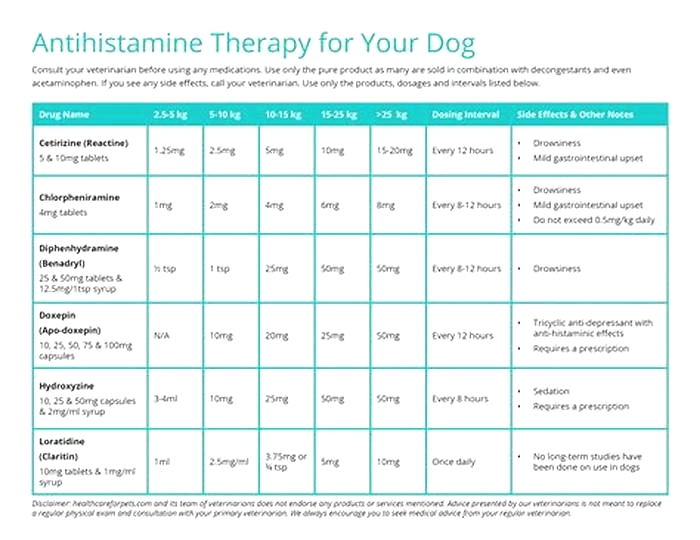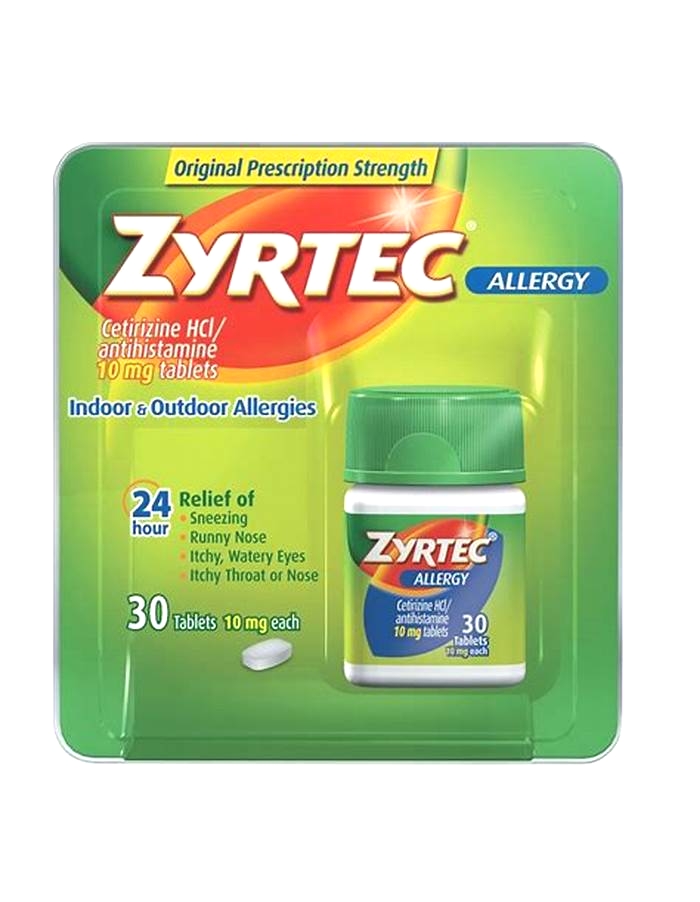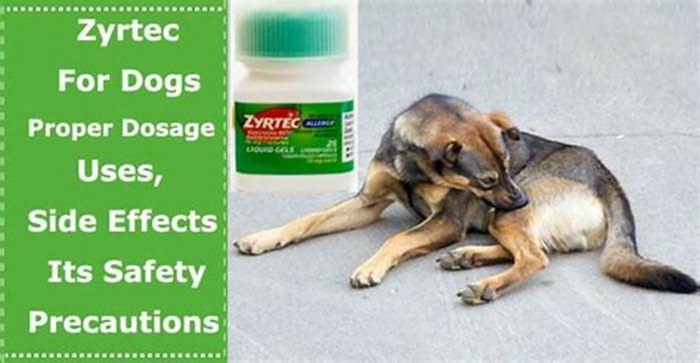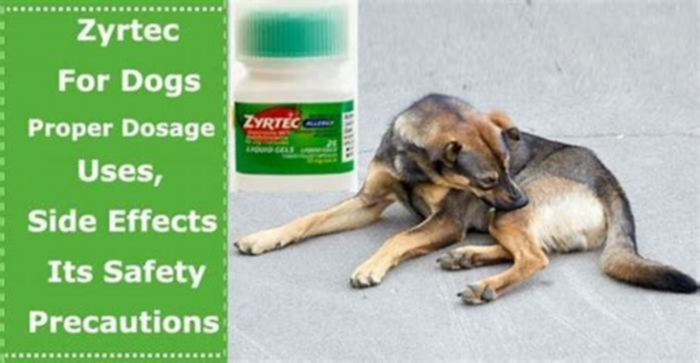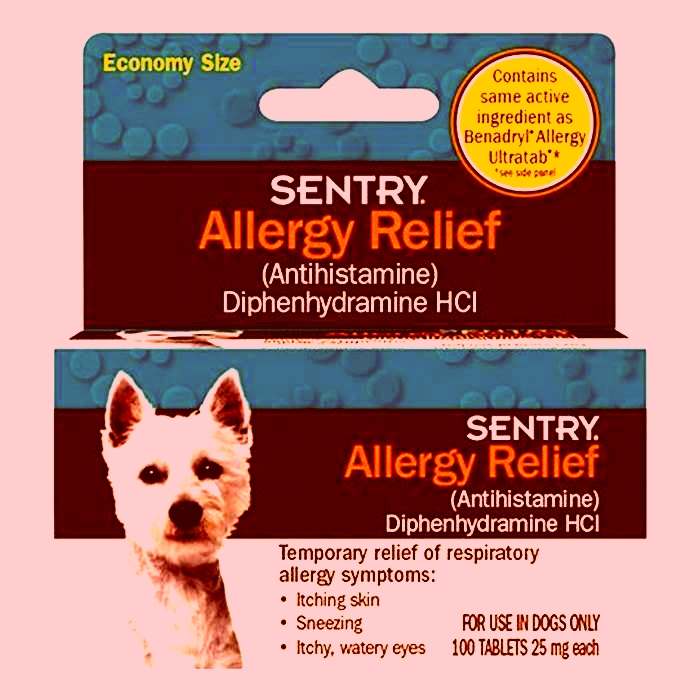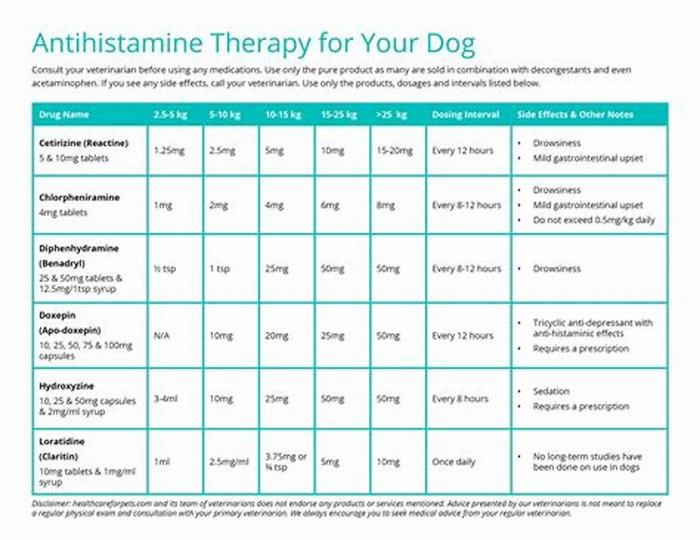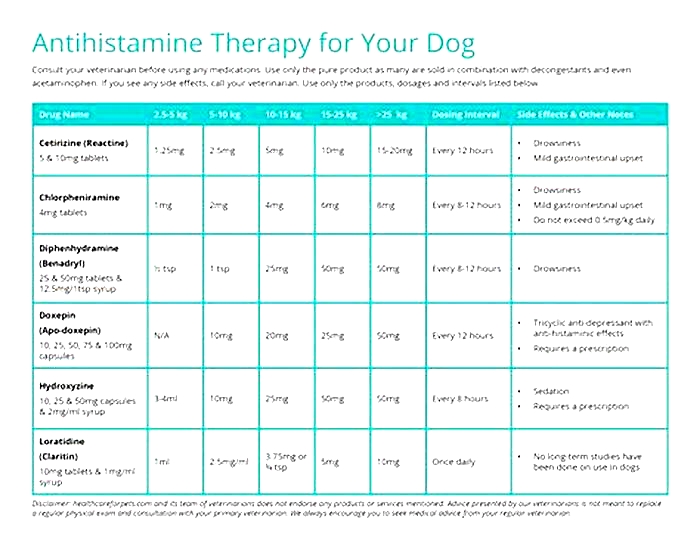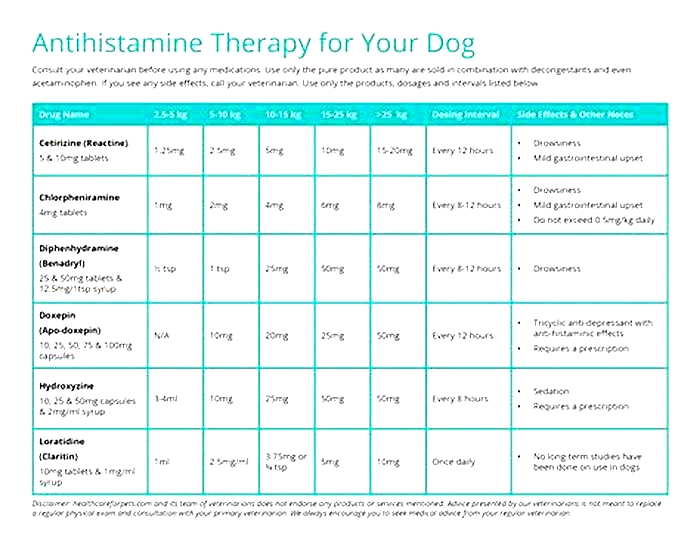What brand of antihistamine is safe for dogs
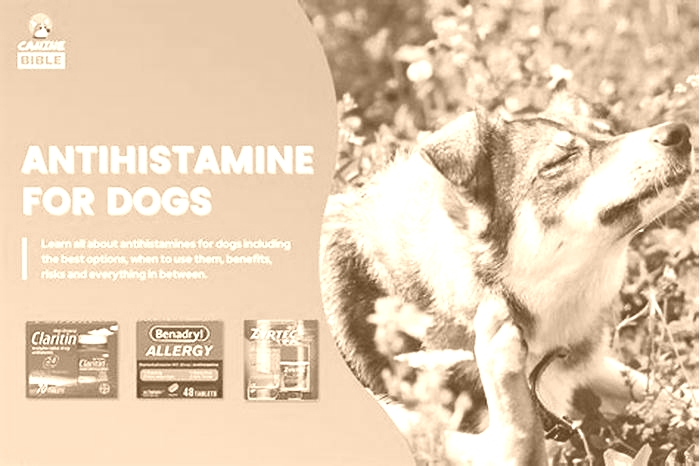
Are Antihistamines For Dogs Safe?
NOTE: You should always contact your veterinarian for advice and guidance before giving a pet any over the counter medication
No dog owner likes to see their pup sneezing, coughing and irritated due to an allergy. Yet finding a solution to the problem seems to be a lot harder than it should be.
Effective, safe and dog-specific allergy medicines seem to be annoyingly difficult to get your hands on (although they do exist), and so its only natural that dog owners have begun to question whether our own human antihistamines could help alleviate the symptoms of a struggling four-legged friend.
From Benadryl to Piriton, this article will explore the pros and cons of giving your dog human antihistamines, helping you to put a stop to your animals agitation!
Can I give my dog human antihistamines?
Human antihistamines are usually safe for dogs to take, but make sure you check the brand and correct dosage amount with your vet before giving one to your pet.
The most commonly used antihistamines are diphenhydramine, cetirizine and loratadine, which can all help relieve symptoms such as itching and sneezing for dogs.

Although sounding decidedly scientific, you may know these better as the main ingredients in well known branded allergy drugs such as Benadryl (diphenhydramine), Claritin (loratadine) and Zyrtec (cetirizine).
Just like with humans, these antihistamines can sometimes have side effects on dogs and so you need to be wary. Thankfully these arent usually harmful and tend to result in either making a dog very drowsy or opposingly making them behave more hyperactive or erratically.
But although most brands are generally safe, you do need to be careful when shopping for over the counter antihistamines. Occasionally they will contain other harmful ingredients such as decongestants which could be toxic for your dog.
Such mistakes can be avoided by thoroughly observing the label and ingredients list, or by getting in touch with your vet!
Best antihistamine for dogs
The best antihistamine for dogs is the Vets Best Seasonal Allergy Tablet, purely because its one of the only antihistamines on the market to be made especially for canines and not humans.
In fact, its not even suitable for human consumption!
This means you no longer have to stress over whether you can give your pooch a Piriton or not, as theres already a doggy designed option readily available!
While most canine allergy relief products are merely a vitamin or fatty acid supplement designed to boost itchy skin, Vet Bests tablets are one of the few to contain an actual antihistamine that prevents your pups body from reacting to allergens and stimuli they are sensitive to.
The tablets utilise the active ingredient diphenhydramine hydrochloride, the same antihistamine used in popular human allergy tablets such as Benadryl. And unlike other dog allergy medicines like Apoquel, Vets Best doesnt require a prescription, making them a cheaper and less time-consuming, quick fix!
The tablets work in the same way as a human drug, by blocking the bodys H-1 receptors in the blood vessels and muscles. This prevents your dogs body from producing histamines when confronted with non-harmful allergens, and in turn prevents irritating reactions like itching, sneezing, watery eyes and a runny nose.

Anyone who owns an allergy-suffering pup knows that skin issues are often the most troublesome symptom. So Vets Best tablets are a particular lifesaver when it comes to providing fast relief to minor skin irritations, helping to reduce constant scratching.
As the tablet is designed for dogs, working out the right dosage for your pet pooch is also totally hassle-free. Here is the simple dosage table for you to follow, based entirely on your pups weight!
- 10-24 lbs: 1/2 tablet
- 25-49 lbs: 1 tablet
- 50-75 lbs: 1 1/2 tablets
- 75 lbs+: 2 tablets
As with any medicines, you should always check with your vet before administering Vets Best to your pet, just to be safe.
Ask a veterinarian before use if your pet has:
- Glaucoma
- Asthma
- Heart Disease
- Hypertension
- Urinary Bladder Obstruction
- Enlarged Prostate Gland
- Hyperthyroidism
- Is Pregnant or Nursing
- Weighs under 15 lbs
Its also particularly important to avoid using it in combination with any other product which contains diphenhydramine, to help avoid overdose
Can I give my dog Benadryl?
Although it might seem strange, it is usually safe to give your dog Benadryl to relieve allergy symptoms, and its even prescribed or recommended by some vets.
However, like with any drug, it may not particularly be the best solution to your pups problem!
Benadryl has been known to have adverse effects when taken in combination with other medications your dog may be on, which is why its always imperative to talk to your vet before administering it.
How and when to use Benadryl for dog allergies
Benadryl is best for dogs who are suffering from low to mild allergic symptoms because the drug isnt specifically formulated for canines, so their effectiveness can range from mild to effective.

However, vets still often use it to ease environmental allergies in pups and also to deal with reactions to insect bites or stings. It can also be used as a pre-treatment for possible vaccine reactions.
It is to be taken orally, so it is often easiest to add a pill to your dogs food.
Benadryl is not a suitable medication if your pet is having an acute allergic reaction.
Symptoms of an acute reaction are characterised by facial swellings, difficulty breathing and in rare cases anaphylactic shock.
When to avoid Benadryl
Benadryl is one of the safest over-the-counter drugs that can double up as a doggy medication.
However, for canines with certain health issues, they are not the smartest choice.
For pregnant dogs, dogs with glaucoma and canines with low blood pressure or cardiac conditions, taking Benadryl is an unneeded safety risk and so its best to avoid using it.
And its also important to note that if you make the wrong choice, they can be a risk for healthy dogs too. Thats because some Benadryl tablets are combined with other medicines which make them unsuitable and so its vital you ensure your Benadryl tablets contain only diphenhydramine.
Whats the correct Benadryl dosage for a dog?
The recommended dosage of Benadryl for a dog is 1 mg per pound of body weight, to be taken 2-3 times a day. Standard tablets are 25 mg, and so they are the perfect size for a 25 lbs dog.
Obviously this gets trickier when your pup is slightly larger or smaller than 25 lbs and so the most reliable thing to do is ask your veterinarian for the correct dosage for your canine.
Can I give my dog Piriton?
It is generally considered safe to give a dog Piriton to treat environmental allergies, as long as you have sought guidance from a veterinary professional first.
Unlike some of the previously mentioned antihistamines, Piriton is mainly made up of the ingredient chlorphenamine. In the human world, this drug is mainly used to treat runny, itchy noses and hive symptoms, making it a great anti-allergy tablet.
However similar to Benadryl, it is often prescribed by vets to help treat dogs suffering allergic reactions.
But as with Benadryl, if using Piriton for a pup, you should be wary of there being a chance of side effects.
In Piriton these can include; drowsiness, constipation, dry mouth and nausea. In rare instances, these can be more severe and may include respiratory issues, irritability, poor coordination, urination issues and affected concentration.
Thankfully, all of these reactions tend to be fairly mild if they actually occur.
When to avoid Piriton for dogs
If your dog has an existing medical condition, it isnt worth taking the risk and giving them Piriton without the advice of a vet.
Whats the correct Piriton dosage for a dog?
Typically, vets recommend dosing by the dogs weight at 0.91.7 mg per pound of body weight, every 8 to 12 hours.
Its important to remember though that this is merely a guideline, and as always, the best way to determine the correct dosage for your dog is to contact your vet.
Benadryl For Dogs
The temptation to reach into our medicine cabinets to treat our pets can be dangerous. Humans and dogs react very differently to medications, which is why veterinarians caution dog owners against making independent decisions about how to medicate their animals. However, some human medications are safe for use with dogs, as long as they are used appropriately.
Veterinarians use diphenhydramine for dogs, commonly known by the over-the-counter human medication brand name Benadryl, for dogs on a regular basis to treat allergies, travel anxiety, and motion sickness. While you should always consult with your veterinarian before giving your dog human medication, here is what you need to know about using diphenhydramine or Benadryl for dogs.
What Is Benadryl?
Benadryl is the brand name for the active ingredient diphenhydramine HCl. Diphenhydramine is a first-generation ethanolamine-derivative antihistamine, which is the scientific way of classifying antihistamines that can cross the blood-brain barrier making them very effective but also increasing risks of adverse side effects. While Benadryl is not yet FDA-approved for veterinary use, it is considered safe for use in dogs and cats and is commonly used in veterinary practices across the U.S.
Diphenhydramine works by blocking the receptors that receive histamines in the body. This relieves many of the symptoms associated with allergies, like itching, sneezing, and hives. The body still produces histamines, but the receptor antagonist blocks the receptors from registering the histamines.
What Does Benadryl Treat in Dogs?
Benadryl is a great medication for use in dogs with mild-to-moderate allergies. Seasonal allergies, food allergies, environmental allergies, and allergic reactions to bites from snakes and insectsall respond to Benadryl in most cases. Benadryl is commonly used to treat itchiness in dogs caused by skin allergies, and it also reduces many of the other symptoms of allergies, including:
- Hives
- Swelling and inflammation
- Redness
- Runny nose and eyes
- Coughing
- Sneezing
- Anaphylactic reaction
One of the side effects of Benadryl is drowsiness, which can help to calm anxious dogs. Diphenhydramine may help relieve symptoms of mild-to-moderate travel anxiety in pets. It also may help relieve motion sickness. Although Benadryl may sometimes relieve anxiety, its best to talk to your veterinarian or an animal behaviorist to determine and treat whats causing the anxiety.
Veterinarians prescribe Benadryl for dogs with mast cell tumors to help mitigate the effects of the massive histamine release caused by mast cell degranulation. Veterinarians sometimes prescribe diphenhydramine during heartworm treatment, as it helps reduce the risk of an allergic reaction to heartworm treatment therapy. Benadryl makes an excellent addition to your diphenhydramine for dogs.
When to Ask Your Vet About Benadryl For Dogs
Before you reach for Benadryl, consult your veterinarian about your dogs symptoms. Allergy symptoms like itching and red eyes may also be signs of more serious conditions. In some cases, giving your dog Benadryl can actually worsen your dogs condition.
Red, goopy eyes could be a symptom of allergies, or it could also be a sign of glaucoma or dry eye, which Benadryl will not help treat. Similarly, itching is frequently associated with allergies and other skin conditions. Your vet will also be able to tell you whether Benadryl will interact with any other medications that your dog is taking.
Side Effects of Benadryl
There are side effects associated with using Benadryl for dogs that all owners should be aware of. Most side effects occur within the first hour of exposure, so monitor your dog carefully during this time.
If your dog has any of the following conditions, only use Benadryl after consulting your veterinarian:
Common side effects associated with using Benadryl for dogs include:
- Drowsiness
- Dry mouth
- Urinary retention
- Hypersalivation
- Increased heart rate
- Rapid breathing
Rare side effects include:
Benadryl Overdose
Its possible to overdose on Benadryl. Signs of an overdose include hyper-excitability of the central nervous system, which can be fatal. Other warning signs to watch for are:
If you suspect your dog has overdosed on Benadryl, contact your veterinarian or emergency veterinary hospital immediately. Some dogs develop an allergic reaction to Benadryl. If your dog starts having symptoms of an allergic reaction, seek veterinary care immediately.
How Much Benadryl Can I Give My Dog?
The best way to determine the correct Benadryl dosage for dogs is to consult your veterinarian. The Merck Veterinary Manual recommends administering 2-4 milligrams of Benadryl per kilogram of body weight, two to three times a day. However, this dosage can vary depending on your dogs medical conditions.
Dr. Jerry Klein, Chief Veterinary Officer for the AKC, warns that you should always consult with a veterinarian before giving Benadryl to a puppy because young puppies can be very sensitive to certain medications. The drug is also not recommended for pregnant or nursing dogs.
Never use time-release capsules for dogs, as capsules are absorbed differently in dogs than in humans and may affect your dogs dosage. They may also break open when chewed and deliver too much medication at one time, putting your dog at risk of an overdose. Your veterinarian can prescribe diphenhydramine capsules for dogs.
Its best to avoid using liquid Benadryl if it contains sodium, which can cause other side effects. Also, avoid any form of Benadryl that contains alcohol. Your vet can prescribe diphenhydramine liquid for dogs.
Childrens Benadryl pills or tablets can be used safely if you ask your veterinarian for the appropriate dosage. Your vet can even prescribe diphenhydramine flavored chews if your dog refuses to take pills or liquids.
Is Benadryl Safe For Your Dog?
Benadryl is a relatively safe and effective medication for dogs when used according to the instructions of a veterinarian. As with any new medication, always observe your dog closely after administration to make sure there arent any adverse reactions. If you have any further questions about diphenhydramine or Benadryl for dogs, contact your veterinarian for more information. And remember to keep all medicineshuman and canineout of reach of your curious dog.

